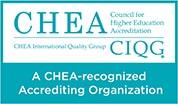Home » Accreditation » Degree Advancement Standards
Degree Advancement Standards
CoARC DA Standards
(as of 1.1.26)
CoARC DA Standards-with changes
(as of 1.1.26)
The CoARC has approved the addition of Programmatic Thresholds to the Accreditation Standards for Degree Advancement Programs in Respiratory Care.
As we strive to enhance the standardization and effectiveness of degree advancement (DA) programs, a crucial step is the establishment of clear thresholds for programmatic learning outcomes. As a key stakeholder, you can think of these thresholds as goals for what we expect students to achieve by the time they graduate with an advanced degree in respiratory care. They will enable us to have a shared, measurable way of evaluating student performance and curriculum efficacy. By defining a minimum acceptable level of achievement, we can ensure consistent quality across DA programs and provide a data-driven foundation for accreditation reporting efforts. This new framework will help us ensure our graduates are meeting the essential competencies needed for professional practice, while also supporting DA program continuous improvement.
————————————-
ELIGIBILITY
To become accredited by the CoARC, degree advancement programs must be established either in accredited postsecondary institutions, by a consortium of which one member must be an accredited postsecondary institution, or in facilities sponsored by the U.S. military (as defined in Standard DA1.1). As outlined in Section 2 of the CoARC’s Accreditation Policies and Procedures Manual, Sponsors must apply for accreditation.
All degree advancement students must be graduates of a CoARC-accredited Entry into Respiratory Care Professional Practice degree program before entry into the program.
PROGRAM REVIEW
Accreditation of degree advancement programs is a voluntary process that requires a comprehensive review of the program relative to these Standards. While the process is voluntary, it provides programs with external validation of their educational offering. Additionally, the process offers prospective degree advancement students one means by which they can judge the quality of the educational experience offered by the program.
Accreditation decisions are based on the CoARC’s assessment of the information contained in the accreditation application and self-study report, the report of site visit evaluation teams and the Annual Report of Current Status, as well as a review of reports or documents submitted to the CoARC by the program during each accreditation cycle. To clarify submitted information additional data may be requested at any time during the review process.
HOW TO APPLY FOR ACCREDITATION
For any inquiries related to this announcement or the review process, please contact Shane Keene, Chief Operating Officer
at shane@coarc.com
(817) 283-2835 ext. 107
“The Value of CoARC Accreditation for Degree Advancement Programs in Respiratory Therapy” written by Joseph Coyle, M.D., FCCP, Senior Lecturer, Boise State University.
Find CoARC Accredited Programs
Job Board
Map of Program Outcomes
Public Disclosure Notices
Program and Personnel Changes
